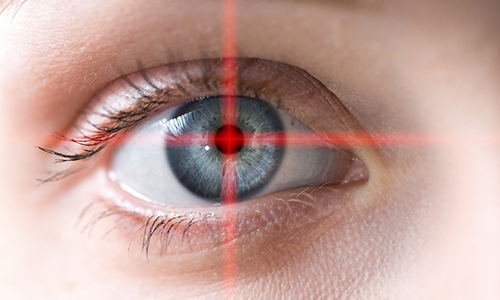ResearchKit Study to Test Smartphones’ mHealth Value in Eye Studies
April 26, 2018
Source: mHealth Intelligence
 862
862

Novartis wants to know if smartphones are good enough to be used in eye studies.
The pharma giant has launched a new project on Apple’s ResearchKit platform to gather data on how smartphones can be used in ophthalmology programs. Through the new FocalView app, company executives are looking to determine what data can be gathered from consumers, as well as whether that data is reliable enough to be used by clinicians.
"Because patients with eye diseases are often not as mobile, FocalView has the potential to offer tremendous benefit for the ophthalmic community and for researchers looking to develop better treatments for these patients," Dr. Mark Bullimore, Dean of the Southern California College of Optometry at Marshall B. Ketchum University and a medical advisor to Novartis for the app’s development, said in a press release. "Collating validated patient-reported outcomes in clinical trial research is no longer a nice-to-have. This kind of data is fast becoming a critical element of research and development, because it offers a better reflection of real-world patient experiences, fosters better patient compliance and provides researchers with richer and more accurate data points."
Novartis officials say the app will be tested for its efficacy and ease of use, as well as its ability to attract a wide range of participants and deliver documents for research trials, such as consent forms.
“By adapting the design of clinical trials to suit the daily routine of patients, the app may reduce barriers to participation, leading to a more nuanced understanding of ophthalmic diseases and potentially accelerating the development of novel treatments,” the company said.
Apple’s ResearchKit platform, launched in 2015 to focus on the clinical trials sector, has been used in dozens of studies, on topics ranging from chronic diseases to population health issues like moods and mental health issues, LGBT health and health issues faced by NFL athletes after they retire.
Novartis, which launched a ResearchKit study in August 2017 to gather insights on care management for people with multiple sclerosis, is among a growing group of pharma interests looking to leverage Apple’s digital health platform for chronic disease and population health studies. GlaxoSmithKline launched its own app in 2016 targeting people dealing with rheumatoid arthritis, while Pfizer launched an app last year for people with lupus.
The idea of using digital health tools in ophthalmology is a hot topic, particularly in consumer-facing programs. Lawmakers in several states have banned or are considering banning online eye exams, or ocular telehealth, over fears that the technology isn’t reliable enough to be used for clinical purposes.
On the opposite side of the argument are companies like Opternative and 1-800 Contacts, who offer online and app-enabled eye exams. They’ve formed a lobbying group, called Americans for Vision Care Innovation, and Opternative is appealing a U.S. District Court judge’s decision to toss the company’s lawsuit against South Carolina’s Eye Care Consumer Protection Law.
Federal reaction to the dispute is mixed. The U.S. Federal Trade Commission has sent a letter to Washington state lawmakers considering a ban on ocular telehealth, saying such a move would unfairly restrict consumers in accessing eye care services. The U.S. Food and Drug Administration, meanwhile, has sent a letter to Opternative warning that its online eye exam technology hasn’t yet been approved under the Federal Food, Drug and Cosmetic Act.
By DduRead more on
- Things to Know before Buying Newborn Baby Incubators March 31, 2022
- Highly Resistant Food Poisoning Bug Responds to Antibiotics September 6, 2018
- Smartphone Based Diagnosis to Identify Mosquitoes Transmitting Infection September 5, 2018
- 3 Natural Plant Extracts Manufacturers on Drugdu.com September 4, 2018
- Shenzhen Chuanggan – Health Assessment Facility Supplier September 4, 2018
your submission has already been received.
OK
Subscribe
Please enter a valid Email address!
Submit
The most relevant industry news & insight will be sent to you every two weeks.



